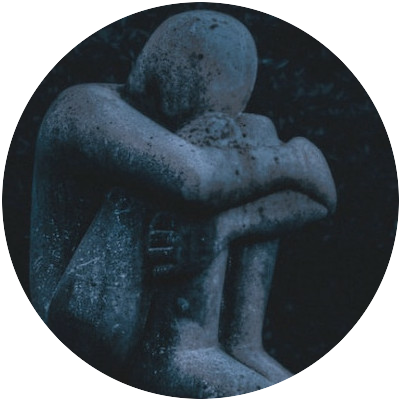If you feel your child is suffering from anything mentally or physically especially if your loved one shows signs of this horrible disease called Oppositional Defiant Disorder! We have never heard of this a day in our lives until now and our own son might be suffering.
disease called Oppositional Defiant Disorder! We have never heard of this a day in our lives until now and our own son might be suffering.
This may have come from years of him suppressing his anxiety and depression that we didn’t even know he had! We should have been watching for other symptoms also that shows the signs of progression into this disorder. This should be brought up immediately to a health professional because it will only get worse as time goes on and it will become more traumatic in the later years!
We as his parents have been warned our own son may end up going into a rehabilitation home until he gets better. This was never what we expected to hear, and I can’t begin to describe the pain in our hearts.
We have been doing everything in our power to reach out and seek help for him or so we thought! We went from talking to him then reaching out to his school. None of this went anywhere so then we chose to seek a therapist and finally into meeting a psychiatrist. Turns out he poses all the signs for Oppositional Defiant Disorder, and we just thought it was just Anxiety and Depression since those go hand in hand!
These Early Signs We Overlooked!
- Having frequent temper tantrums even over small things.
- Arguing over anything especially adult/guardians.
- Refusing to do anything an adult asks him/her to do.
- Either questions the rules or even refusing to follow the rules set forth for them.
- Goes out of their way to annoy or upset others especially ones with authority.
- Always finding ways to blame others for their own misbehavior/mistakes.
- Constantly being annoyed by others.
- Quick to speak harshly or just downright unkind.
- Seeking revenge or being vindictive especially towards parents/guardians or anyone with authority.
Possible Causes and Symptoms That Puts Children at Risk!
- Mood and anxiety disorders.
- Conduct disorders.
- Attention – deficit/hyperactivity disorder or (ADHD).
- Family Trauma like death or illness.
- Learning disability or a development issue.
- Most of the time it is notice by the school the child attends by not adjusting well within the environment.
Possible Treatments of this Horrible Disease!
- Family Therapy: This is very important due to the problems it causes with in the family environment! it’s important that an adult understands the child may not be able to control their anger outbursts. It will be hard trust me we are going through it currently. it’s especially hard when there are other children inside the household. This is a whole household issue that will require every one’s effort on their own part. You may even be assigned a CRPC (Comprehensive Reginal Pediatric Center). This organization acts as mediator that can come to your home and your child school to monitor behavior and report to the Psychiatrist for better treatments.
- Behavioral Therapy: This will teach the child how to better solve problems and altogether communicate on a better level without anger. The child will also learn how to deal with the impulses and urges that can lead to anger.
- Peer Group Therapy: This helps the child deal with social skills while in a public environment.
- Medicines: This will usually be the last resort for most children with Oppositional Defiant Disorder. However, medications may be used to treat an underlying issue the child may have that caused this.
Helping the Child Cope With This!

As I said before earlier the diagnosis is made, and treatment begins the better off the child will be. This will ensure there to be minimal lifelong or future problems. As a guardian it is a wise practice to stay in contact with a child school and make them aware of the issue and what to expect. Make sure they know the severity of the issue and that the child is receiving professional help. It truly takes every one of the child peers to be involved in treatment to insure it gets corrected properly! As far as within the home make sure everyone participates in the treatment process because it will be a smoother recovery for the child. It takes new hobbies and a schedule that must be followed by everybody. Sometimes with a schedule it makes things seem more structured for the little ones and you may even need to start a healthier eating lifestyle.
In Conclusion!
We as the parents/guardians need to understand that is a team effort at this point. Sometimes the parents will need to listen and take the first steps that the child needs and lead by example. Whatever the changes needed by the child the parents will have to reciprocate. If it means fewer videos game or phone time for the child, the parents need to limit themselves also because they don’t comprehend at this point why it is OK for you but not them. Make sure all doctors’ appointments are kept and any meetings because once again a tight regimen is needed. We as parents need to understand also that they may be taking a lot of time going to a Therapist, Psychiatrist, and PCP simultaneously. This will all be laid out with the help of a professional who is also the only one to be able to diagnose this issue. So, as I wrap this up just remember this must be diagnosed by a professional NOT at home because only a professional will be able to correct the behavior if medications are needed! Please feel free to leave any comments on this issue so we can respond in a prompt manner.
Children with mental struggles are a very sensitive topic that we must address and I commend you on that. Frequent tantrums, and constant fights against parents and anyone with authority shouldn’t be overlooked. Unfortunately, we fail to realize that children have their own way to cope with some negative events, and when they reach their teenage years without any cure for their problems, it’s often too late…
Totally agree especially now!!! We are told by professionals that even after 6 to 8 months it makes it way harder to correct. It is so sad because he looks at us like we are wanting this, but it is the only option. I couldn’t imagine waiting until his teenage years. Thank you so much for the input it is much appreciated.
Kevin and Son